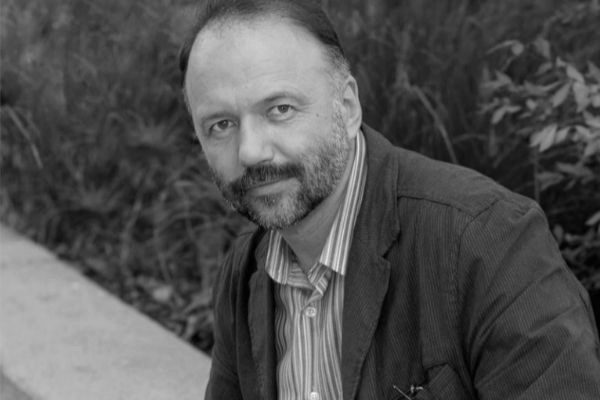Andrei Kurkov tells a joke: «Reagan, Mitterrand and Putin get to hell. They are showing the offices and see a phone on a table. Reagan asks: 'Can I call home?' And they answer: 'Sure. But the rate is expensive: $ 1,000 a minute. ' And then Mitterrand goes: 'And I, can I call home?' 'Yes. $ 1,000 a minute. ' And then Putin, the same. And the devil tells him: 'Yes. But its rate is one cent per minute. Yours is a local call ».
Kurkov, a Ukrainian novelist, has a long history with jokes. «I got to have 3,000 scored. I didn't even know which ones I had invented and which not. I became fond of jokes for my brother who was a dissident, a rebel. I accompanied him in meetings with his friends and watched them tell jokes. His way of going against dictatorship was humor .
Humor is an issue in Andrei Kurkov's novels. It was in Death with Penguin , the book with which many Spanish readers discovered Kurkov, and is The Gardener of Ochakov , the novel that now rescues Blackie Books. However, that humor is not based on jokes but on a tender and sweet and slightly absurd perplexity. Nothing makes much sense but the characters get along with what comes to them and try to be happy.
A little information: in The Gardener of Ochakov we have a boy who is not so young (he has turned 30) but still lives with his mother in a suburb of Kiev. The mother hires a gardener to fix the yard and befriends her. He asks the gardener for a half-blurred tattoo he has and tells him that he has never known who did it or what it means. They get on the track and travel to a town in the Black Sea. They go to a party, disguise themselves as a Soviet military and it turns out that the costume is magical and that he wears it until 1956 . The mafia appears, someone falls in love with someone ... That kind of thing.
«1956 was the best year in the history of the USSR. The de-Stalinization of Khrushchev began, we put the Sputnik in orbit ... There was a climate of optimism that only lasted a while, until the Prague Spring began, ”explains Kurkov.
«I travel through time for young readers. Look, I wrote this book when I discovered that education policy in Ukraine consisted in telling that the Soviet Union was something alien that was imposed on the Ukrainians, that we had nothing to do with it. There were very dark pages in the Soviet history of Ukraine: famines, deportations, repression of poets in the Ukrainian language ... That people know. What he doesn't know is the role of the Ukrainian communists in that drama. Three secretaries of the CPSU were Ukrainians and there were millions of faithful Ukrainian communists ».
And he continues: «For young readers, it is an adventure novel. For the old, it is an evocative story. "
According to the criteria of The Trust Project
Know more- Ukraine
- Russia
- literature
- culture
LiteraturaSvetlana Alexiévich: "Contemporary man is out of thread"
Chernobyl history: man is more dangerous than uranium
The Paper SphereAbbie Hoffman or the journey from idealism to delirium

